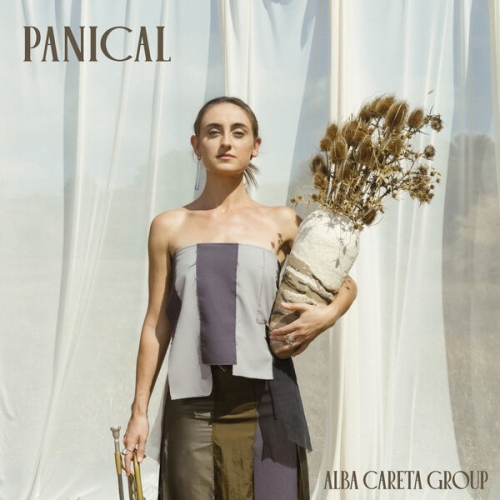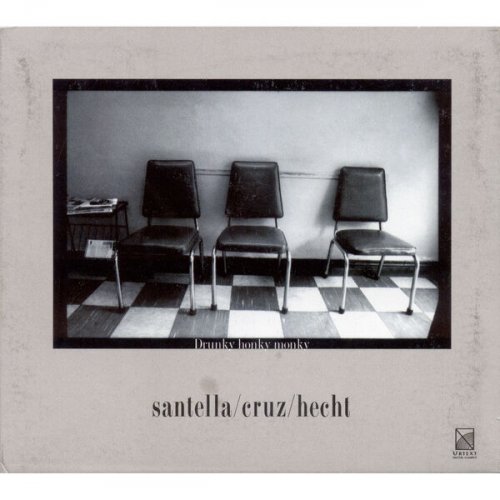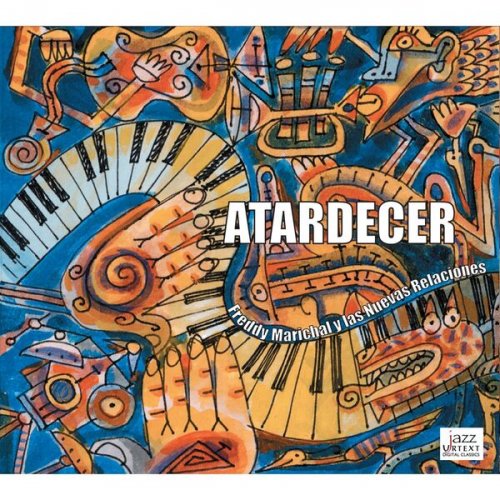Paul O’Dette, Stephen Stubbs - Conradi: Ariadne (2005) [CD Rip]
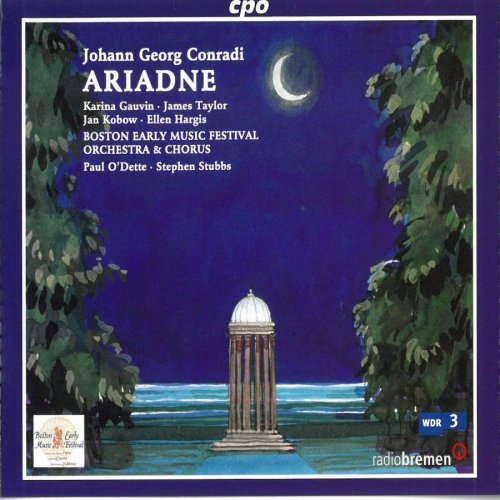
Artist: Orchestra & Chorus of the Boston Early Music Festival, Paul O’Dette, Stephen Stubbs
Title: Conradi: Ariadne
Year Of Release: 2005
Label: CPO
Genre: Classical
Quality: FLAC (image + .cue, log, scans)
Total Time: 2:55:45
Total Size: 873 MB
WebSite: Album Preview
Tracklist:Title: Conradi: Ariadne
Year Of Release: 2005
Label: CPO
Genre: Classical
Quality: FLAC (image + .cue, log, scans)
Total Time: 2:55:45
Total Size: 873 MB
WebSite: Album Preview
Disc 1
01. Overture
02. Act I: Grimmes Glück! Nach allen Plagen
03. Wie so allein:
04. Liebe muß verständlich sein
05. So bald der nächste Tag anbricht
06. Bleibt noch der Schluß auff Morgen fest gestellt:
07. Wann sehnlicheres Wünschen die Sinnen vergnügt
08. Thu liebste Phædra, meinen Willen
09. O freudiger Tag
10. Ich acht es nichts
11. Was meinen Geist macht trübe
12. Die Liebe allein mit Geister
13. Soll deine Treu mir ewig sich verbinden:
14. Ersticket, erdrücket, ihr Seufftzer mein Herze
15. Hoffnung, Hoffnung sei willkommen
16. Empfindstu nicht, O Printzl schon solch Vergnügen
17. Wie leicht ist es den Kranken Raht zu geben
18. Wann auf Lieben folgt Genießen
19. Scheren und Messer und Pfriem zu schleifen
20. Was kann der edlen Schleiffer-Kunst
21. Ho, ho! Holla he! Kommt keiner nicht
22. Messer und Scheren zu schleifen
Disc 2
01. Act II: Auff, auff erbostes Glücke
02. Schönster Augen Sonnenschein
03. So laß dich, Schönste, noch einmal vor meinem Tod umfassen
04. Nimm, schönster Engel, Herz und Mund
05. Verwegensterl
06. Die Freude wird nur schlechten Stand
07. Glückseliger Tag an dem ich soll verblassen
08. Wie kann Harz dergleichen Flammen schauen
09. Eilt, ach eilet zu meinem Vergnügen
10. Er lasse doch dergleichen Fratzen
11. Weil die Mädchen dieser Zeit
12. Pamphilius! Wer hat dich das gelehrt:
13. Es sollen Zeugen seyn die güldnen Sternen
14. Wilt du mich beständig lieben
15. Das heißt sich durch die Welt gebracht
16. Aber denkt, ihr guten Leute
17. Chaconne
18. Alles ist nur Eitelkeit
19. Ich will und muß mit Theseus gehn
20. Schönstes Seelchen, fahre wohl
21. Ihr Augen die der Himmel zieret
22. Sie spare doch, Vortrefflichstel das Klagen
23. Doch ich will in Hoffnung bleiben
24. Ariadne, Act II:Ich bitt euch doch noch hunderttausend mal
25. Gute Nacht Ihr Anverwandten
26. Geneigte Liebe beglücke die Lust
Disc 3
01. Act III: Prelude
02. Mein Wünschen ist erfüllt
03. Ihr Sternen, steht still
04. Weil durch des Minotaurus Hals
05. Nun Edle, Rache sol dein Gift
06. Hat Theseus gleich unendlich mich verbunden
07. Süsser Saft der edlen Reben
08. Wegl alles Lob des Nektars süsser Reben
09. Wer sich vor Amor find zu schwach
10. Air
11. Bisher ist unsere Flucht gelungen
12. Brich an, brich an gewünschte Nacht
13. Sie schläft, auff auff mein Schatz wir müssen fliehen
14. Oh Weh! Ach rette mich!
15. Ihr Furien, auf, auf!
16. Wie aber! Ist er meines Zorns auch wert:
17. Hat, Verhänguss, meine Pein, irgend ihresgleichen:
18. Marche
19. Wie so betrübt, mein allerschönstes Kind:
20. Erinnere dich, mein Licht, dass mir allein gebührt
21. Liebliche Flammen, fügt zusammen Seelen
22. Edles Paar, dem nichts zu gleichen
23. Es zeigt sich des gantzen Himmels Raht
In the wake of the establishment of the first public opera house in Venice in 1637, emulators sprang up throughout Europe. Public (as opposed to court) opera?s furthest-flung 17th-century outpost was the free city of Hamburg, where, despite opposition from church authorities, opera was established at the Gänsemarkt in 1678. As I mentioned when recently reviewing a disc of his songs, the house opened with a performance of Johann Thiele?s Adam und Eva , but the loss of this sacred drama, along with a number of other early Hamburg operas, leaves Conradi?s Ariadne of 1691 with the distinction of being the earliest extant opera composed for the Gänsemarkt.
The early part of the career of Johann Georg Conradi (c. 1645?1699) followed that of a typical 17th-century German court composer. His first major post was as Kapellmeister to the court in Oettingen, his hometown. In 1683, he moved to the more prestigious position of director of music at the court city of Ansbach, where there was a strong musical establishment that presented both Italian operas and those of Lully. On the disbandment of this establishment in 1686, Conradi took up a similar post in Römhild, remaining there until he was appointed music director of the Gänsemarkt in 1690. Four years later, he left Hamburg, possibly following disagreements with management of the theater, to return to his home city, where he died on May 22, 1699.
Conradi composed nine operas during his tenure at Hamburg, but only Der schöne und getreue Ariadne , to give the full title, survives. Like all the lost works, Ariadne has a libretto by Christian Heinrich Postel, who, according to Paul O?Dette?s excellent introductory note, was a poet rated by one literary scholar as the best of all German librettists, Wagner included! Certainly, the action-filled drama moves forward with purpose and a cohesive sense of plot, while much of Postel?s poetry has a direct beauty and simplicity that make it as much suited to musical setting as that of Metastasio. The plot revolves around the familiar story of Theseus?s killing of the Minotaur, a deed he was enabled to undertake with aid from the Cretan King Minos?s daughter Ariadne, who is subsequently heartlessly abandoned by Theseus on the island of Naxos, here?if not in the original story?in favor of her sister Phaedra. On Naxos, Ariadne was consoled by Bacchus, who for most of the opera appears in the guise of her unsuccessful suitor Evanthes. There is little heroic about Postel and Conradi?s Theseus, who spends most of the opera cynically manipulating the emotions of the two sisters, behavior acutely observed in true Venetian opera style by his comic servant Pamphilius. As with Venetian public opera, audiences at the Gänsemarkt were drawn from a wide social spread, the more bourgeois element obviously delighting in such low comedy as the long final scene of act I, in which Pamphilius describes his trade as a scissors and knife sharpener. He is an attractive character, something of a prototype for Papageno, and the part is splendidly played here by Jan Kobow with true comic relish.
Conradi?s acquaintance with the operas of Lully is immediately apparent from the dotted-rhythm opening of the overture, and continues to manifest itself throughout many of the dances, and orchestral ritornellos. It?s particularly apparent in the big Passacaille that forms the penultimate scene, acting as a superbly dramatic release of tension after the tremendous scena in which Ariadne awakes to find Theseus has deserted her. This, of course, has frequently served as an independent set piece for composers, but I would venture to suggest that few have matched the dramatic power of Conradi. That it makes such a vivid impression is at least in part due to the exceptionally strongly projected singing of Karina Gauvin, who here caps an enthrallingly involved, if not always perfectly executed, performance that has already included a gripping account of the great Chaconne that opens act II.
There is, however, far more to the score than obeisance to Lully, Conradi proving himself very much his own man in a series of arias and vocal ensembles that fuse a mixture of Italian elements with those of his own native German song. That he was gifted with a mastery of melodic inspiration is shown in number after number, some of the most appealing being triple-time dance airs. Most striking of all is the composer?s acute awareness of word setting, an attribute experienced at its highest level in the remarkable recitatives, in particular those set as emotion-laden, highly expressive ariosos with string accompaniment. There are many examples, but Theseus?s sole moment of remorse about Ariadne, ?Wie kan ein hertz? (act II, scene 6) is an especially affecting and beautiful example, sensitively sung by tenor James Taylor, who throughout turns in an excellent, stylishly sung assumption of the part.
The present set stems from performances originally given at the Boston Early Music Festival in June 2003, although it was made as a studio recording through the auspices of that indispensable German radio station, WDR. Judging from both notes and aural evidence, the edition employed was lovingly and painstakingly prepared by O?Dette and Stephen Stubbs, although I?m not convinced that the side drum in the final chorus adds anything other than noise. The performance as a whole shows every sign of the benefits of stage production, none of the singers I?ve yet to mention specifically contributing less than good and thoroughly committed singing. The Evanthes/Bacchus of countertenor Matthew White, and Julian Podger?s Pirithous indeed rise considerably above that, and I?m inclined to blame slightly less than ideal sound for the fact that Ellen Hargis?s voice isn?t quite as appealing as is usual with this delightful singer. She does however rise splendidly to the dramatic possibilities offered to Queen Pasiphæ, mother of Ariadne and Phaedra, in her outraged act III scena.
Ariadne is an opera of such extraordinary quality as to tempt speculation that had Conradi?s other operas not been lost, the history of German opera might have been written very differently. Even standing alone, it places its composer at least on a level with his successor Keiser, and as one of the most important contributors to the genre before Mozart, making this splendid release an issue of the utmost importance. Bravo to all involved. ~ FANFARE: Brian Robins
The early part of the career of Johann Georg Conradi (c. 1645?1699) followed that of a typical 17th-century German court composer. His first major post was as Kapellmeister to the court in Oettingen, his hometown. In 1683, he moved to the more prestigious position of director of music at the court city of Ansbach, where there was a strong musical establishment that presented both Italian operas and those of Lully. On the disbandment of this establishment in 1686, Conradi took up a similar post in Römhild, remaining there until he was appointed music director of the Gänsemarkt in 1690. Four years later, he left Hamburg, possibly following disagreements with management of the theater, to return to his home city, where he died on May 22, 1699.
Conradi composed nine operas during his tenure at Hamburg, but only Der schöne und getreue Ariadne , to give the full title, survives. Like all the lost works, Ariadne has a libretto by Christian Heinrich Postel, who, according to Paul O?Dette?s excellent introductory note, was a poet rated by one literary scholar as the best of all German librettists, Wagner included! Certainly, the action-filled drama moves forward with purpose and a cohesive sense of plot, while much of Postel?s poetry has a direct beauty and simplicity that make it as much suited to musical setting as that of Metastasio. The plot revolves around the familiar story of Theseus?s killing of the Minotaur, a deed he was enabled to undertake with aid from the Cretan King Minos?s daughter Ariadne, who is subsequently heartlessly abandoned by Theseus on the island of Naxos, here?if not in the original story?in favor of her sister Phaedra. On Naxos, Ariadne was consoled by Bacchus, who for most of the opera appears in the guise of her unsuccessful suitor Evanthes. There is little heroic about Postel and Conradi?s Theseus, who spends most of the opera cynically manipulating the emotions of the two sisters, behavior acutely observed in true Venetian opera style by his comic servant Pamphilius. As with Venetian public opera, audiences at the Gänsemarkt were drawn from a wide social spread, the more bourgeois element obviously delighting in such low comedy as the long final scene of act I, in which Pamphilius describes his trade as a scissors and knife sharpener. He is an attractive character, something of a prototype for Papageno, and the part is splendidly played here by Jan Kobow with true comic relish.
Conradi?s acquaintance with the operas of Lully is immediately apparent from the dotted-rhythm opening of the overture, and continues to manifest itself throughout many of the dances, and orchestral ritornellos. It?s particularly apparent in the big Passacaille that forms the penultimate scene, acting as a superbly dramatic release of tension after the tremendous scena in which Ariadne awakes to find Theseus has deserted her. This, of course, has frequently served as an independent set piece for composers, but I would venture to suggest that few have matched the dramatic power of Conradi. That it makes such a vivid impression is at least in part due to the exceptionally strongly projected singing of Karina Gauvin, who here caps an enthrallingly involved, if not always perfectly executed, performance that has already included a gripping account of the great Chaconne that opens act II.
There is, however, far more to the score than obeisance to Lully, Conradi proving himself very much his own man in a series of arias and vocal ensembles that fuse a mixture of Italian elements with those of his own native German song. That he was gifted with a mastery of melodic inspiration is shown in number after number, some of the most appealing being triple-time dance airs. Most striking of all is the composer?s acute awareness of word setting, an attribute experienced at its highest level in the remarkable recitatives, in particular those set as emotion-laden, highly expressive ariosos with string accompaniment. There are many examples, but Theseus?s sole moment of remorse about Ariadne, ?Wie kan ein hertz? (act II, scene 6) is an especially affecting and beautiful example, sensitively sung by tenor James Taylor, who throughout turns in an excellent, stylishly sung assumption of the part.
The present set stems from performances originally given at the Boston Early Music Festival in June 2003, although it was made as a studio recording through the auspices of that indispensable German radio station, WDR. Judging from both notes and aural evidence, the edition employed was lovingly and painstakingly prepared by O?Dette and Stephen Stubbs, although I?m not convinced that the side drum in the final chorus adds anything other than noise. The performance as a whole shows every sign of the benefits of stage production, none of the singers I?ve yet to mention specifically contributing less than good and thoroughly committed singing. The Evanthes/Bacchus of countertenor Matthew White, and Julian Podger?s Pirithous indeed rise considerably above that, and I?m inclined to blame slightly less than ideal sound for the fact that Ellen Hargis?s voice isn?t quite as appealing as is usual with this delightful singer. She does however rise splendidly to the dramatic possibilities offered to Queen Pasiphæ, mother of Ariadne and Phaedra, in her outraged act III scena.
Ariadne is an opera of such extraordinary quality as to tempt speculation that had Conradi?s other operas not been lost, the history of German opera might have been written very differently. Even standing alone, it places its composer at least on a level with his successor Keiser, and as one of the most important contributors to the genre before Mozart, making this splendid release an issue of the utmost importance. Bravo to all involved. ~ FANFARE: Brian Robins
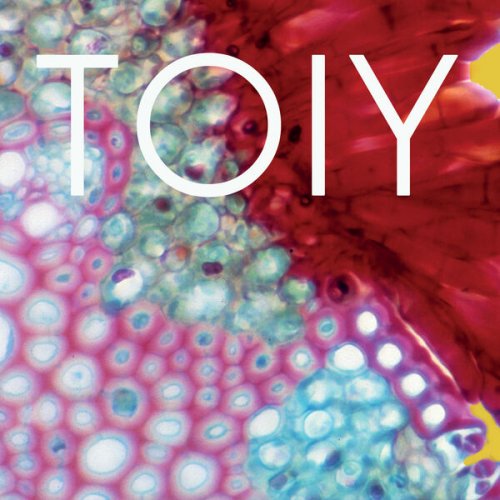
![Mari Boine - Goaskinviellja - Eagle Brother (Remastered 2025) (2026) [Hi-Res] Mari Boine - Goaskinviellja - Eagle Brother (Remastered 2025) (2026) [Hi-Res]](https://img.israbox.com/img/2026-01/31/so1zgdk2eva394qd3qtlyxfd2.jpg)
![Nathan Surquin - Ambre (2026) [Hi-Res] Nathan Surquin - Ambre (2026) [Hi-Res]](https://www.dibpic.com/uploads/posts/2026-02/1770135175_folder.jpg)
![Beverly Glenn-Copeland - Laughter In Summer (2026) [Hi-Res] Beverly Glenn-Copeland - Laughter In Summer (2026) [Hi-Res]](https://www.dibpic.com/uploads/posts/2026-02/1770134638_folder.jpg)

